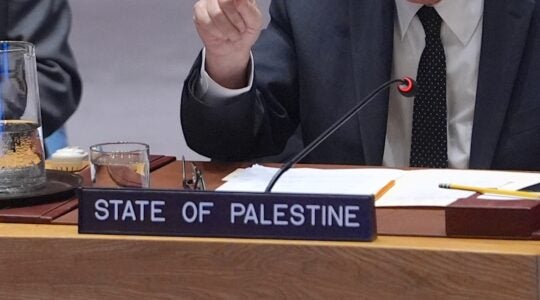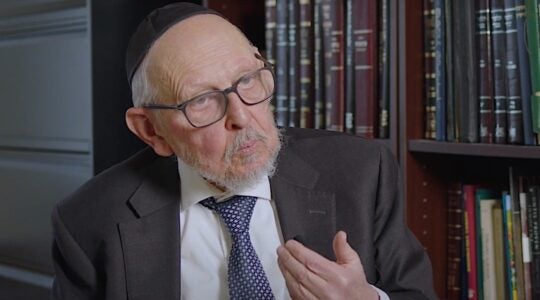Started amid great hope five years ago, Yale University’s Initiative for the Interdisciplinary Study of Anti-Semitism (YIISA) closes its doors this month surrounded by disappointment and suspicion. The academic study center, only one of two based at American universities that focus on millennia-old hatred of Jews, was created at a time when, by all accounts, anti-Semitism was on the rise worldwide. In recent years, a growing amount of anti-Semitism has taken root in the Islamic world, if not, as some scholars claim, in Islam itself.
Which is a subject that the YIISA, to its credit, investigated.
And is why, according to some critics, Yale decided to stop supporting the Initiative.
In announcing the program’s demise, Donald Green, director of Yale’s Institution fort Social and Policy Studies, where the privately funded YIISA was based, cited academic reasons. The Initiative, which like other university programs, was to sponsor academic conferences, publish scholarly papers and offer popular courses, did too little of each, he said.
“YIISA suffered the same fate as other initially promising programs … that were eventually terminated at ISPS,” Green said — “because they failed to meet high standards for research and instruction.”
But critics in the Jewish community and in online blogs, which often reflect grass-roots feelings, do not accept this explanation. Newspapers report that the Yale administration disagreed with the Initiative’s emphasis on contemporary Muslim anti-Semitism, a concentration that is both potentially politically incorrect and harmful to soliciting financial support from Islamic nations.
“Get anywhere near Muslim or Middle Eastern anti-Semitism … and you’ve crossed the line,” Abby Wisse Schachter wrote in a New York Post column last week. “Some suggest that Yale feels it can act with impunity because, earlier this spring, one of YIISA’s most powerful backers died; without his money and influence, the school can rid itself of a politically inconvenient nuisance.”
The school, citing Green’s prepared statement, declined to further elaborate on the closing of the anti-Semitism program.
Yale, which early in the last century drew criticism for its quota on the number of Jewish students it admitted, deservedly earned praise for giving a home to the Initiative, whose seminars and conferences — including one last year that discussed the genocidal nature of Islamic anti-Semitism — brought leading scholars to the New Haven campus.
Now it appropriately draws criticism from such prominent organizations as the American Jewish Committee and the Anti-Defamation League. An “unfortunate decision,” said David Harris, AJC’s executive director. “If there were problems that the university raised, they needed to be dealt with and resolved,” ADL National Director Abraham Foxman said. “The decision to end the Center was a bad one on its own terms, but it is even worse because it leaves the impression that the anti-Jewish forces in the world achieved a significant victory.”
Scholars for Peace in the Middle East, a group that fights anti-Israel bias on college campuses, suggested, according to JTA, that “Yale was buckling to pressure from Iran, whose Intelligence Ministry in January 2010 placed Yale on a list of 60 institutions it considered part of a U.S.-Israeli-British plot to ‘subvert’ the Islamic Republic. However, Yale officials said at the time of Iran’s announcement that the listing would have little effect on the university.”
Whatever the reason for the closing of the Initiative, Yale’s decision silences an institution whose efforts against anti-Semitism were guided by intellect, not emotion, and could buttress the campaign against what is known as the “world’s oldest hatred.”
The Initiative’s goal, according to its mission statement, was “to create a vibrant space in which high-caliber scholarship, discussion and debate can develop and be nurtured.”
While one academic institution lamentably closes this month, the need for programs like it continues.
The New York Jewish Week brings you the stories behind the headlines, keeping you connected to Jewish life in New York. Help sustain the reporting you trust by donating today.




